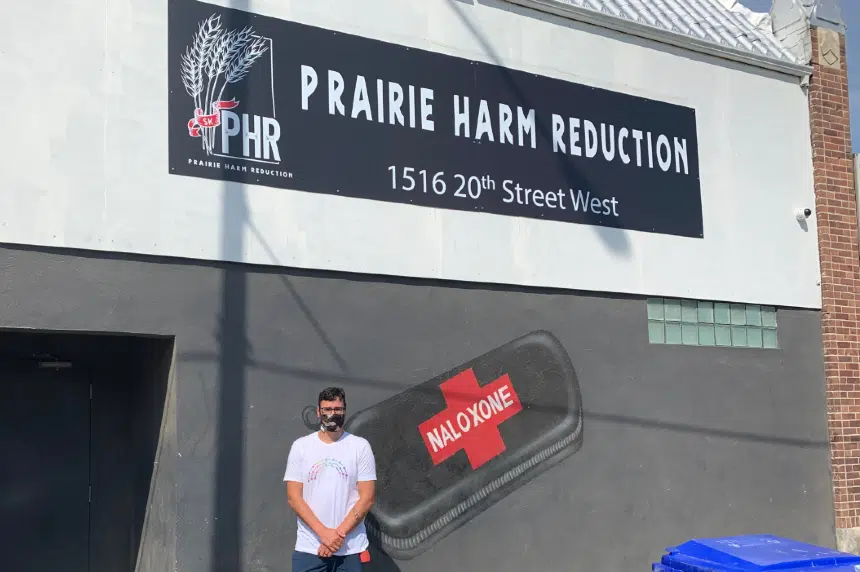Prairie Harm Reduction Executive Director Jason Mercredi says overdose deaths in Saskatchewan are “the epidemic within the pandemic.”
“We need real-time action, and we need it now,” Mercredi told 650 CKOM Wednesday in response to a recent report on Saskatchewan’s Drug Toxicity Deaths.
The report, which Mercredi said was released late Friday without a press release, outlines how severe the overdose deaths have become this year in Saskatchewan.
The Saskatchewan Coroners Service report details that in 2020 so far, 40 confirmed Drug Toxicity Deaths have occurred. He said those numbers come directly from Regina, where there was a rash of overdose deaths earlier this year.
An additional 139 unconfirmed Suspected Drug Toxicity Deaths have occurred in the province, according to the report, from Jan. 1 to Aug. 6, 2020.
According to a recent Saskatchewan Coroners Report, Saskatchewan has tentatively already set a record for most O.D. deaths in a single year… and it’s only August. @prairiehr‘s Jason Mercredi called @SaskHealth‘s handling of the situation “the shame of the country” #yxe #yqr pic.twitter.com/8yIMWetsQr
— Brady Lang (@BradyLangSK) August 19, 2020
Mercredi wants the Saskatchewan Health Authority (SHA) to report these deaths in real-time but has heard excuses when questioning the SHA.
“We’re the only place in the country that the health authority doesn’t notify the public on this public health issue,” he said.
“We still have half the year to go. If this was any other health issue, this would be a full-court press to deal with this. But what we’re seeing is, basically, ‘not our problem,’ or ‘we don’t know what to do.’”
Mercredi said on top of the high overdose deaths, Saskatchewan is seeing record-high HIV numbers, along with dealing with the existing and ‘widely-reported’ crystal meth epidemic.
“It’s kind of pathetic, to be honest,” he said.
“I’m very frustrated. The fact that we’re having to fundraise to bring in a life-saving service that’s clearly needed when the health authority has said they don’t have the funds for it. It’s kind of a joke at this point. They either need to make this a priority or just come out and say it: they don’t care about this issue.”
Mercredi claimed the number one target group at risk of overdose deaths are single white men who work in trades.
He said in talks with the SHA, he has been told that there is no mechanism in place to report these deaths, but he has a simple solution to that problem: “Make one.”
“When you know people are dying in the community. When you know that they are aware of it. And yet they’re not reporting to the public… I don’t know what to call it, other than, it’s just the shame of the country at this point,” he said.
According to the report, 1,141 confirmed overdose deaths have been recorded in Saskatchewan since 2010. If the unconfirmed deaths are confirmed, the 179 total deaths would break a single-year record. That record was set in 2018, according to the report, at 171.
Another alarming statistic? The 179 death mark would account for 14 per cent of all overdose deaths in Saskatchewan since 2010.
“I hate to see what’s going to happen when we get those final numbers,” Mercredi said.
The safe consumption site is scheduled to open on Oct. 1, 2020. Hours will run from 9 a.m. to 4 p.m. Monday to Friday.
Even as preparations for the grand opening continue, Mercredi told a chilling tale of a recent incident at the site.
“It’s just been a little crazy, what’s happening out on the street. As of yesterday, we had somebody overdose in our back alley. Thank goodness there was a person there who had a naloxone kit, and they were able to notify staff… Luckily, we were able to get them revived and save their life,” he claimed.
Mercredi is looking for answers, and long-term solutions to the ‘epidemic within the pandemic.’
He said he’s talked to police, who share worries of summer turning to fall, and fall turning to winter with the existing systems set in place.
“What’s going to happen when people go indoors, and retreat to gang houses and trap houses and even just using by themselves,” he said.
650 CKOM has reached out to the SHA as to why mechanisms haven’t been put in place to track the overdose deaths in the province. Its spokesperson said they are still gathering information on the request, and expect a response in the coming days.







